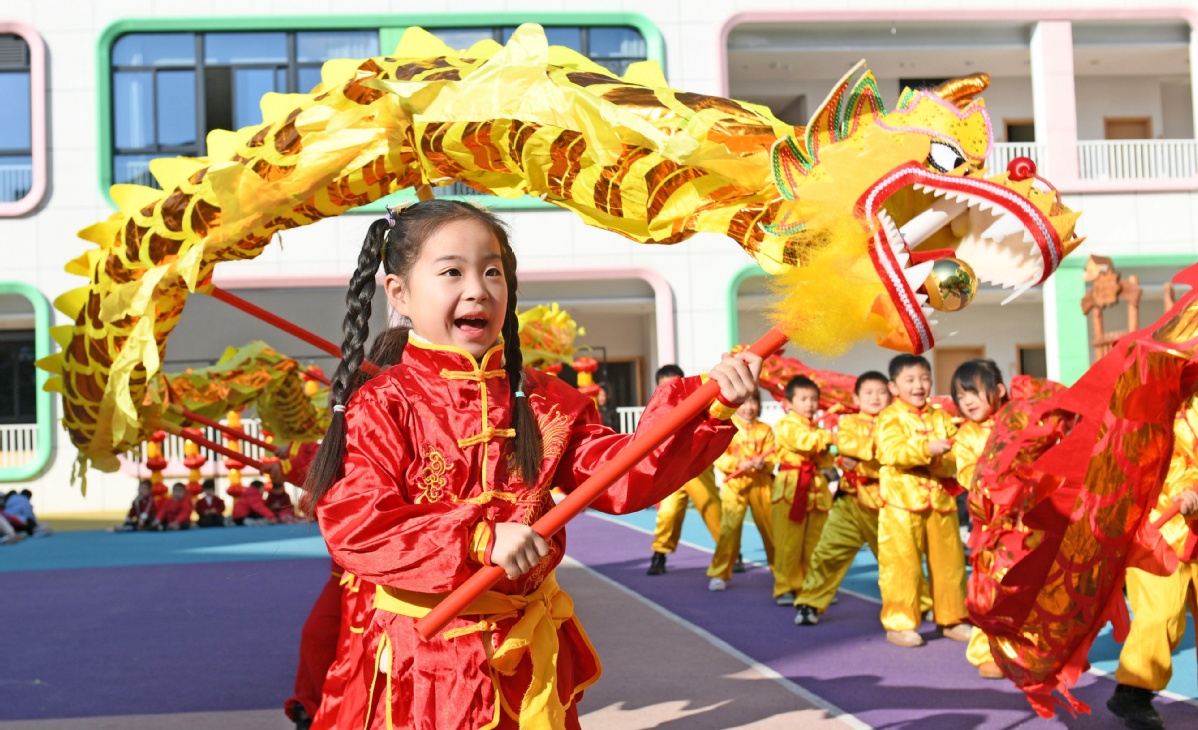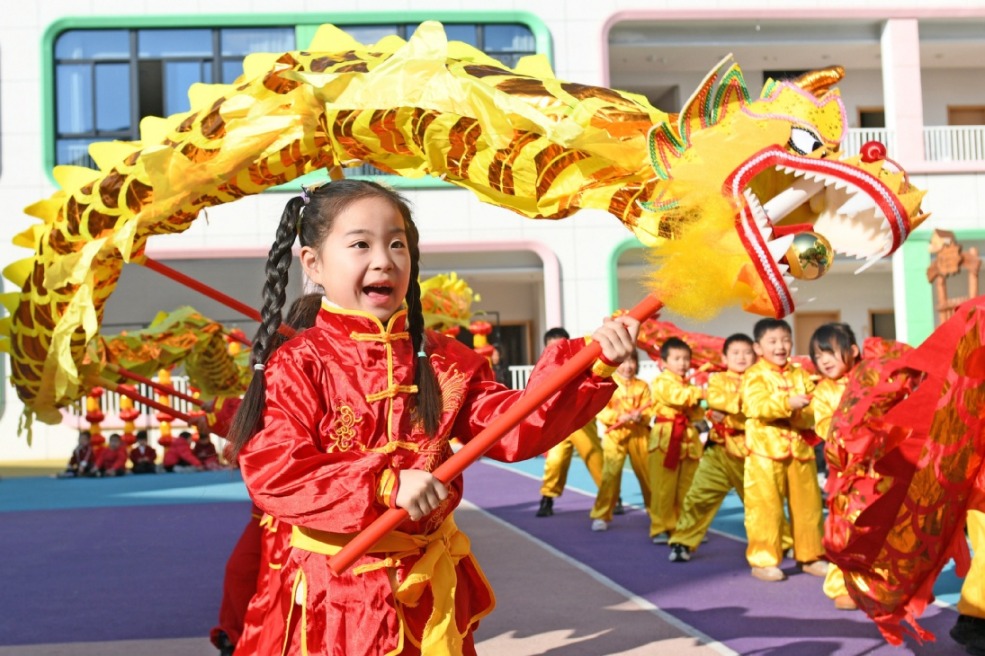UNESCO recognizes festival's promotion of harmony


The Chinese people have expressed their immense joy and pride over the recent honor bestowed upon Spring Festival, the country's oldest and most important traditional festival.
On Wednesday, UNESCO inscribed Spring Festival — the social practices of the Chinese people in celebration of their traditional new year — on the Representative List of the Intangible Cultural Heritage of Humanity.
The decision was made during the 19th session of the Intergovernmental Committee for the Safeguarding of the Intangible Cultural Heritage in Asuncion, Paraguay, in recognition of the festival's rich tapestry of social practices, rituals and cultural elements that engage the entire Chinese society.
The news quickly topped the chart of popular topics on social media platform Sina Weibo, garnering over 400 million views as of 7 pm on Thursday.
Reacting to the UNESCO honor, Foreign Ministry spokesman Lin Jian said on Thursday that Spring Festival embodies the values of peace, harmony and unity cherished by the Chinese people and the Chinese civilization.
It is not just a Chinese festival but a global one, he said, noting that nearly 20 countries have designated the first day of the first month of the Chinese calendar as a public holiday, with about one-fifth of the world's population participating in various forms of celebration.
Lin also extended a warm invitation to people worldwide to visit China and experience the vibrant festivities firsthand.
Spring Festival, which marks the beginning of Chinese New Year, witnesses practices including wishing for good fortune, organizing family reunions and promoting social harmony. Such celebrations are known as guonian, or crossing the year.
Rao Quan, vice-minister of culture and tourism, who led the Chinese delegation at the UNESCO session, emphasized that Spring Festival has provided lasting spiritual strength to the Chinese people, promoting family and social harmony, economic development, environmental protection and global cultural exchanges.
The UNESCO recognition for the festival will help promote universal values of peace and harmony and highlight the role of intangible cultural heritage in sustainable development, Rao added.
Kang Zhen, an expert on traditional culture and vice-president of Beijing Normal University, highlighted the profound impact the UNESCO recognition is expected to have on the global Chinese community.
"The inscription will strengthen cultural identity and connections, enhancing the sense of belonging among the Chinese people worldwide," he said.
Kang added that this acknowledgment would help establish Spring Festival as a "shared treasure of humanity", promoting its cultural traditions and values, and encouraging the preservation of other traditional festivals.
UNESCO's documentation noted that the traditional knowledge and customs associated with Spring Festival are passed down both informally within families and communities and formally through the education system. The festival's craftsmanship and artistic skills are transferred through apprenticeships, fostering family values, social cohesion and peace, while reinforcing cultural identity, it said.
Kang said he believes that these enduring characteristics will only grow stronger with time and technological advancements, enhancing people-to-people relations and mutual understanding.
Chen Hongyu, an intangible cultural heritage scholar at Nanjing University of the Arts in Jiangsu province, said the UNESCO recognition underscores the importance of preserving cultural diversity and promoting intercultural dialogue. He highlighted diverse activities such as the custom of displaying New Year paintings.
Wu Xin, a cultural expert, said the Taibo Temple Fair, a Spring Festival celebration in Wuxi, Jiangsu province, during which locals worship their ancestors on the ninth day of the Chinese New Year, will gain greater visibility and influence following the UNESCO inscription.
"The inclusion of Spring Festival on the UNESCO list is significant for tracing, revitalizing and promoting Chinese traditional culture," Wu said.
Pan Lusheng, vice-president of the China Federation of Literary and Art Circles, called the UNESCO honor an effective response to cultural dissemination. Calling for continued efforts to protect and carry forward the rich culture of Spring Festival, he emphasized the urgent need for studying and preserving traditional festivals.
Last year, the United Nations General Assembly adopted a resolution designating Spring Festival as an official UN holiday, signaling its gradual recognition as a global celebration.
With the recent addition, China now has 44 cultural elements or practices recognized by UNESCO as intangible cultural heritage.
Xinhua contributed to this story.
yangfeiyue@chinadaily.com.cn
























